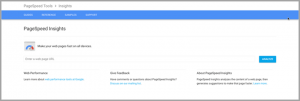
Search marketers can no longer ignore Bing. For too long, marketers focused their SEO efforts on Google alone since the search giant had the largest market share by far. However, Bing has slowly and steadily been building its market share, and it shows no signs of slowing down.
Could Bing eventually take Google’s place as the top-used search engine? The idea isn’t that far-fetched. Even if it doesn’t become Number 1, Bing does have a significant enough market share that you can’t ignore it. If you aren’t optimizing your site for Bing, you are losing out on a lot of potential traffic.
Not only are you losing out on potential traffic, but you are losing out on valuable traffic. Studies have shown that traffic from Bing has a lower bounce rate, generates more clicks for affiliate links, gets more page visits, get longer site visits, and results in more list subscribers. So why aren’t you optimizing for Bing again?
Here are the SEO ranking factors for Bing that you’ll want to make sure your site includes:
User Engagement
User engagement is one of the most important signals for Bing search. This makes sense as user engagement is one of the most important factors for your site’s health. If you have a lot of users actively engaging with your site, that’s a sign that you are providing valuable information and compelling content.
Bing will consider your site to have strong user engagement if people click on your site from search results and do not quickly hit the back button. You can improve this by using the right keywords for your site and providing useful and compelling information that keeps readers on your site.
Content
Just like Google, Bing places a premium on content. Your site should have plenty of fresh and unique content to stay at the top of search results.
In particular, Bing places a premium on longer, more in-depth content. It also needs that content to focus on particular keyword or phrase. In contrast, optimizing for Google typically involves using a few keywords on your page to create topical relevance. And, of course, you need to avoid duplicate content at all costs if you want to rank in any search engine.
Site Structure
Bing provides specific requirements for structuring your site. In particular, Bing wants you to make all your content as easy to access as possible. No page should be more than three clicks from the home page, which can be challenging for blogs that have extensive archives or e-commerce stores that have complex sorting hierarchies.
The flow of your content should also go from a general topic to a more specific one. Therefore, if you sell home goods, your content should flow from Gardening to Lawnmowers, not vice versa.
Keyword Domains
Keyword domains are important in Bing. Instead of www.bobsplace.com, you should have a domain like www.orlandoburgershack.com. Since Google does filter exact match domain names, it is important that you find a compromise between the two. Focusing on just one keyword should be enough.
Click Through Rates
Click-through rates are as important to Bing as they are to Google. If your site is getting more people clicking on your pages in search, you will rank higher in future search results. You can improve your click-through rates by writing compelling titles and ensuring that your content matches up with what your title promises.
Links
Links are not as important in Bing as they are in Google, but they do have a place in ranking. Getting backlinks will give you a boost in Bing, just not as big a one as you’ll get in Google. In particular, Bing likes to see links from body content instead of a sidebar or list of links. So getting someone to mention your site or use you as a reference will give you a boost.
The anchor text that is used for your links is almost more important as the links themselves. Bing actually factors anchor text more heavily than Google does. Bing wants to see exact keywords, while Google wants to see a mix of terms. The best way to reach a compromise is to use exact keywords on the highest authority sites and then use a mix of terms for the other links you get.
Social Signals
Though debate is still going about whether social results matter to Google ranking, it is very clear that they matter in Bing. In fact, Bing returns social results in search. You’ll find posts from Facebook and tweets from Twitter mixed in with website search results. Getting your social results to appear relies on using keywords in your posts as well as linking your site to your social profiles.
Optimizing for Bing isn’t much different from optimizing for Google, but there are subtle differences. Make sure you are getting the most traffic that you can by optimizing for both.
Digital & Social Articles on Business 2 Community(103)









